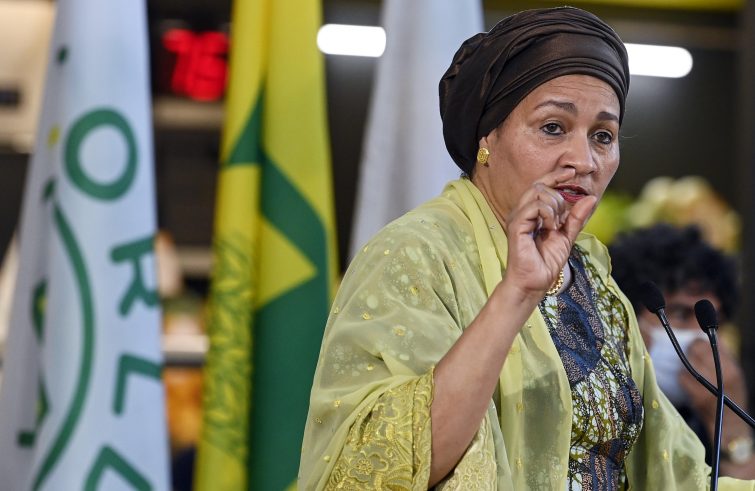
In his address to participants at the UN Food Systems Pre-Summit yesterday, the Pope denounced world hunger as “a scandal.” The lack of “daily bread is a crime”, for it amounts to a breach in human rights. Our missionaries serving in the peripheries of the world reaffirm it, as they bear witness to severe forms of poverty that “are not a result of random circumstances but deliberate”, in territories that have been “devastated by the injustices” of a predatory economy. Agribusiness and land grabs are aggravating drought and poverty in Africa, as well as in Latin America, especially Brazil.
Recover the wisdom of Mother Earth. “These past decades saw the massive destruction of farmland in Brazil, initially to provide space for large herds of cattle and later for agribusiness activity”, Maria Soave Buscemi, consecrated lay missionary, told SIR and Popoli e Missione. “It amounted to hectares of cultivated soybean plantations, sugar cane and maize. But none of those crops are intended to feed the people! They are biofuels for market demands.” Maria Soave recommends recovering the wisdom of Mother Earth: “I serve as a missionary in the prelature of San Felix of Araguaia,” she said. “This region had its first bishop, Fr Pedro Casaldaliga, in the 1960s. At the time, the territory formed part of the Pan-Amazonia (so it does today, in theory), which meant there were large expanses of forest habitat, and several native peoples were freely living in those forests. The agribusiness industry came into being in the 1980s. And monoculture farming with it.
“Many world populations live on maize,” Soave pointed out, “but here, those cereal grains were never used to nourish the people: they are biofuels.”
Farmers “are steadily losing their farmland and are being abused by all sorts of injustices. The soil is also being devastated by this poison.”
“The Pope is right.” Africa remains the most impoverished and exploited continent. It is governed by a deeply inequitable system. Two missionaries, Fr. Amedeo and Sr. Rita, from Benin and Mozambique, explain why the Pope’s words are prophetic and eye-opening. “Pope Francis, as a good shepherd and shepherd of a Church of the peripheries, is fully aware of what is happening in Africa, and has the moral authority to say this – said Sister Rita Zaninelli from Nampula – he is right to say that it is a scandal. The Pope is right: it is a scandal and a crime! A country like Mozambique, which is so rich in timber, minerals, coal, all kinds of natural resources, is afflicted by poverty and hardship. It is indeed a scandal! I am not very fond of the FAO leaders, but one thing I can safely say is that lack of food is a crime.” She added, “having no food for the poor is a deliberate decision of the powerful. Thank God we have the prophecy of Pope Francis.”
Human tragedies. For the missionaries, starvation is a tangible reality. Fr. Amedeo Cristino, fidei donum in Benin, recounted the story of eight women from the village of Cotiakou, where he lives. They are widows, lacking even a daily meal. In these extremely poor conditions, missionaries make a world of difference and can act as a watershed between life and death.
“All these women are very old, and for weeks had been living off on meagre subsistence and on the compassion of their neighbours,” recalled Fr Amedeo.
“We visited them with Caritas volunteers and listened to their stories: theirs were stories of loneliness, of families torn apart in an attempt to overcome poverty, of children who had left one day and never returned, stories of disease.”
A parcel of maize. Subà has no more food for her two youngest daughters at home. She receives a parcel of maize from the parish: “As I watched them walking away light-footed despite carrying the weight of maize on their heads,” Father Amedeo recalled, “I remembered the word of the Lord, spoken by Elijah, to the widow in the town of Zarephath in Sidon: ‘the jar of flour was not used up and the jug of oil did not run dry.’” But charity is not enough in the long run, said Sister Rita, who campaigns against land grabbing. “Unless the economic processes underlying hunger are reversed, the problem will never be solved. The entire system is flawed: the poor are instrumental to the rich.”
(*) editorial staff, “Popoli e Missione”












